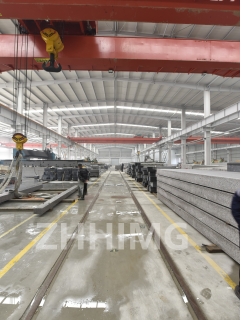Wafer processing equipment is an integral part of the semiconductor manufacturing process. These machines are composed of various components, including granite components. Granite is an ideal material for these components due to its excellent stability and durability. However, like any other material, granite components are prone to defects that may impact the performance and efficiency of wafer processing equipment. In this article, we will discuss some common defects of granite components in wafer processing equipment.
1. Cracks:
One of the most common defects in granite components is cracks. These cracks may result from various factors, including extreme temperature variations, mechanical stress, improper handling, and inadequate maintenance. Cracks can impair the structural integrity of granite components, making them more susceptible to failure. Moreover, cracks can act as potential sites for stress concentration, leading to further damage.
2. Chipping:
Another defect that may occur in granite components is chipping. Chipping can result from various incidents such as accidental collisions, improper handling, or wear and tear. Chipped granite components may have a rough surface and uneven edges that can damage wafers during the manufacturing process. Furthermore, chipping can compromise the dimensional accuracy of the component, leading to equipment malfunction and production downtime.
3. Wear and tear:
Continuous usage and constant exposure to abrasive materials can result in wear and tear of granite components. Over time, wear and tear may result in a decrease in performance and efficiency of the wafer processing equipment. Additionally, it may cause an increase in maintenance costs and replacement expenses.
4. Misalignment:
Granite components, such as wafer processing tables and chucks, must be precisely aligned to maintain the required accuracy and consistency in the manufacturing process. However, misalignment can occur due to various reasons, such as improper installation, exposure to vibrations, or component damage. Misalignment can lead to inaccuracies in the manufacture of wafers, which can result in defective products.
5. Corrosion:
Granite is an inert material that is resistant to most chemicals and solvents. However, prolonged exposure to aggressive chemicals, such as acids or alkalis, can lead to corrosion of the granite components. Corrosion can result in surface pitting, discoloration, or loss of dimensional accuracy.
Conclusion:
Granite components are critical for the stability and reliability of wafer processing equipment. However, defects such as cracks, chipping, wear and tear, misalignment, and corrosion can impair the performance and efficiency of these components. Proper maintenance, adequate handling, and regular inspection can help to prevent and mitigate the impact of these defects. By addressing these defects effectively, we can ensure the continued operation of these critical components and maintain the quality and accuracy of the wafer processing equipment.
Post time: Jan-02-2024

